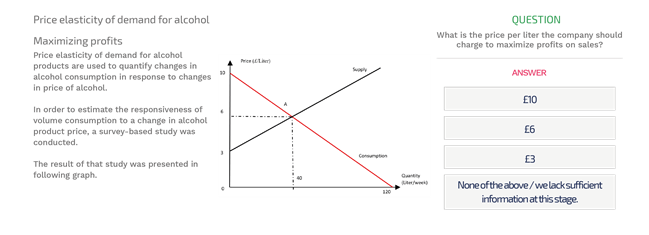The Boston Consulting Group (BCG) is an American worldwide management consulting firm. The firm has 85 offices in 48 countries. BCG advises clients in the private, public, and non-profit sectors. The clients of BCG include more than two-thirds of the Fortune 500 companies. The company reported a revenue of $5.6 billion in 2016 and had 14,000 employees.
When applying with BCG for a consulting position, you will be asked to make the Boston Consulting Group Potential Test. The BCG Potential Test, also called BCG Online test or BCG Reasoning Test, is among the most difficult standardized psychometric tests. The BCG Potential Test is, for the most part, a different version of the McKinsey Problem Solving Test. Just like the McKinsey PST, the BCG Potential test is used to assess the numerical computation and logical thinking skills that are required in consulting. These are the skills that allow you to read a graphical chart, data spreadsheet, and understand what provided data is conclusively telling you and separate this from what the data is suggesting (but not definitely so).
The BCG Potential Test is a math computation, data interpretation and logical thinking test that is used to determine which candidates are granted a first round case interview. Candidates are invited based on their resumes and in order to get to the interview, you need to pass this test. The BCG Potential Test is created in such a way that the skills and abilities needed for everyday work as a consultant at a top management firm are assessed.

BCG Potential Test example question.
The correct answer is to the example question above is B, £6.
A. If price is £10, there is no consumption, so revenue equals 0.
B. If price is £6, there are 40 liters of alcohol products sold per week, the revenue will be £240.
C. If price is £3, there is no supply, so revenue equals 0.
D. At equilibrium, the company achieves maximum profits on sales.
